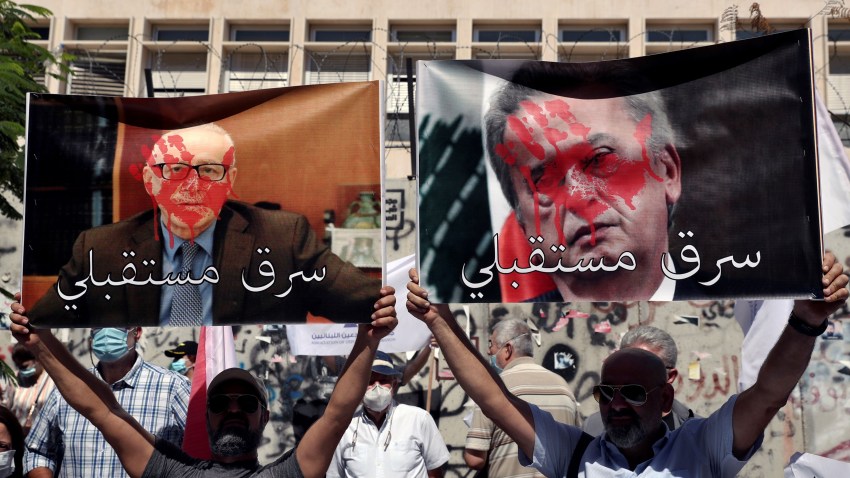The lack of accountability can explain a lot of the worst behavior of state actors around the world. This is especially true in the Middle East, where elite impunity has been an ongoing driver of the cycles of conflict and destruction that have eviscerated the region in recent decades. And rarely is the connection between impunity and harm done by the state as clear as it is in Lebanon’s ongoing, epic economic meltdown.
Since February, the symbol of that meltdown has been the head of Lebanon’s central bank, Riad Salameh, who is currently on the lam, fleeing the criminal charges he finally faces for the decades of mob-style shakedowns to which he has subjected an entire nation. But the 71-year-old Salameh is anything but a rogue actor. He is the paragon of a governing system that enabled and relied on him. He has enjoyed enthusiastic support over the years, not just from Lebanon’s entire political class, but also from the international financial institutions and supposedly pro-reform Western governments that continue to backstop Lebanon’s corrupt governance system and, until recently, directly endorsed Salameh.
Salameh has been clever at pleasing important constituencies. Lebanese bankers loved him because he enabled them to make massive profits even while the economy collapsed. Lebanon’s ruling class appreciated the fact that Salameh maintained the country’s dollar peg until 2019, long after it was viable, and they benefit even now from his willingness to prioritize the interests of a few elite business cartels over the health of the national economy. Western governments, and especially the United States, valued Salameh’s cooperation in shutting Hezbollah and other listed terrorist entities out of the banking system. In exchange, they backed Salameh to the hilt, despite copious evidence of corruption and mismanagement.

